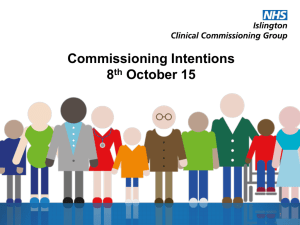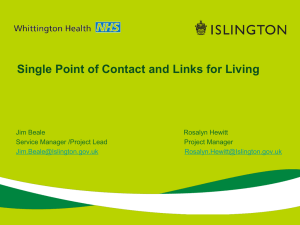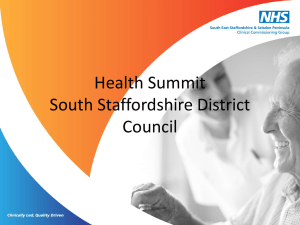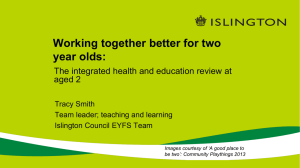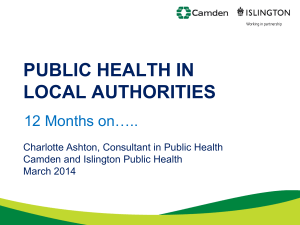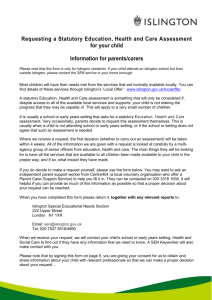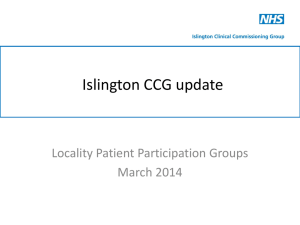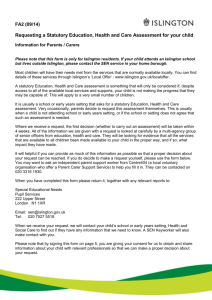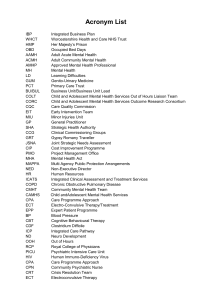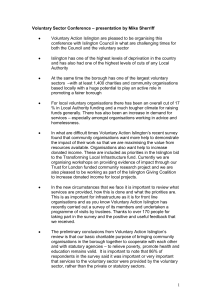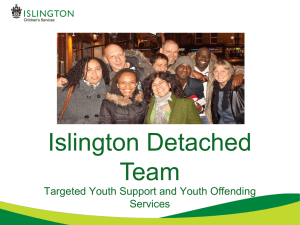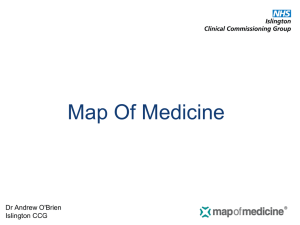notes of discussions - Voluntary Action Islington
advertisement
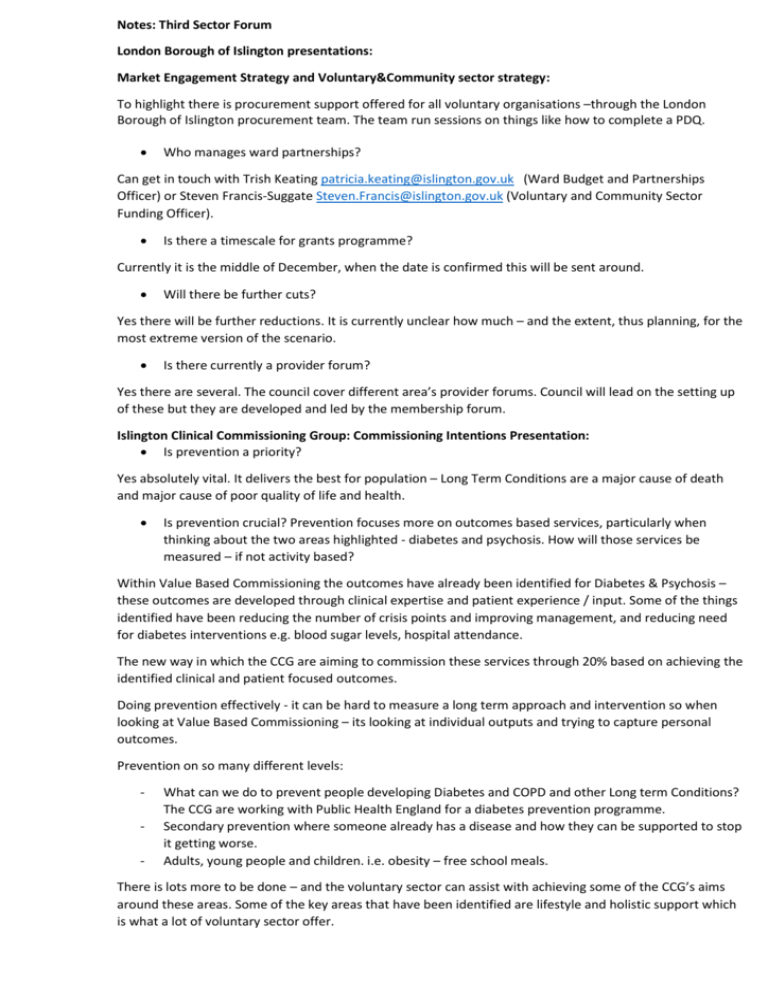
Notes: Third Sector Forum London Borough of Islington presentations: Market Engagement Strategy and Voluntary&Community sector strategy: To highlight there is procurement support offered for all voluntary organisations –through the London Borough of Islington procurement team. The team run sessions on things like how to complete a PDQ. Who manages ward partnerships? Can get in touch with Trish Keating patricia.keating@islington.gov.uk (Ward Budget and Partnerships Officer) or Steven Francis-Suggate Steven.Francis@islington.gov.uk (Voluntary and Community Sector Funding Officer). Is there a timescale for grants programme? Currently it is the middle of December, when the date is confirmed this will be sent around. Will there be further cuts? Yes there will be further reductions. It is currently unclear how much – and the extent, thus planning, for the most extreme version of the scenario. Is there currently a provider forum? Yes there are several. The council cover different area’s provider forums. Council will lead on the setting up of these but they are developed and led by the membership forum. Islington Clinical Commissioning Group: Commissioning Intentions Presentation: Is prevention a priority? Yes absolutely vital. It delivers the best for population – Long Term Conditions are a major cause of death and major cause of poor quality of life and health. Is prevention crucial? Prevention focuses more on outcomes based services, particularly when thinking about the two areas highlighted - diabetes and psychosis. How will those services be measured – if not activity based? Within Value Based Commissioning the outcomes have already been identified for Diabetes & Psychosis – these outcomes are developed through clinical expertise and patient experience / input. Some of the things identified have been reducing the number of crisis points and improving management, and reducing need for diabetes interventions e.g. blood sugar levels, hospital attendance. The new way in which the CCG are aiming to commission these services through 20% based on achieving the identified clinical and patient focused outcomes. Doing prevention effectively - it can be hard to measure a long term approach and intervention so when looking at Value Based Commissioning – its looking at individual outputs and trying to capture personal outcomes. Prevention on so many different levels: - What can we do to prevent people developing Diabetes and COPD and other Long term Conditions? The CCG are working with Public Health England for a diabetes prevention programme. Secondary prevention where someone already has a disease and how they can be supported to stop it getting worse. Adults, young people and children. i.e. obesity – free school meals. There is lots more to be done – and the voluntary sector can assist with achieving some of the CCG’s aims around these areas. Some of the key areas that have been identified are lifestyle and holistic support which is what a lot of voluntary sector offer. Psychosis: This is an area which is a focus for CCG because if you have psychosis – you are more likely to die 20 years earlier than the rest of the population, because physical health is so poorly supported and managed for those with a mental health condition. People also need support to look after themselves – physically. Islington has high levels of Mental Health issues and in terms of spending are ranked comparatively / proportionately high against other CCGs (recently). There is currently a pilot in Primary Care Mental Health services, which will be rolled out across Islington. The pilot has shown 60% reduction in referrals into secondary Mental Health services. So that people who would have waited for support – are now seen in a Primary Care setting and speedily managed. As part of this the CCG are auditing the way primary care staff have recorded a Mental Health diagnosis – auditing if they have captured appropriately the diagnosis and thus support. Public Health (LBI): Joint Strategic Needs Presentation: Joint Strategic Needs Assessment (JSNA) is evidence used to decide on priorities for funding? Yes this information is used to make commissioning decisions across health and council.
